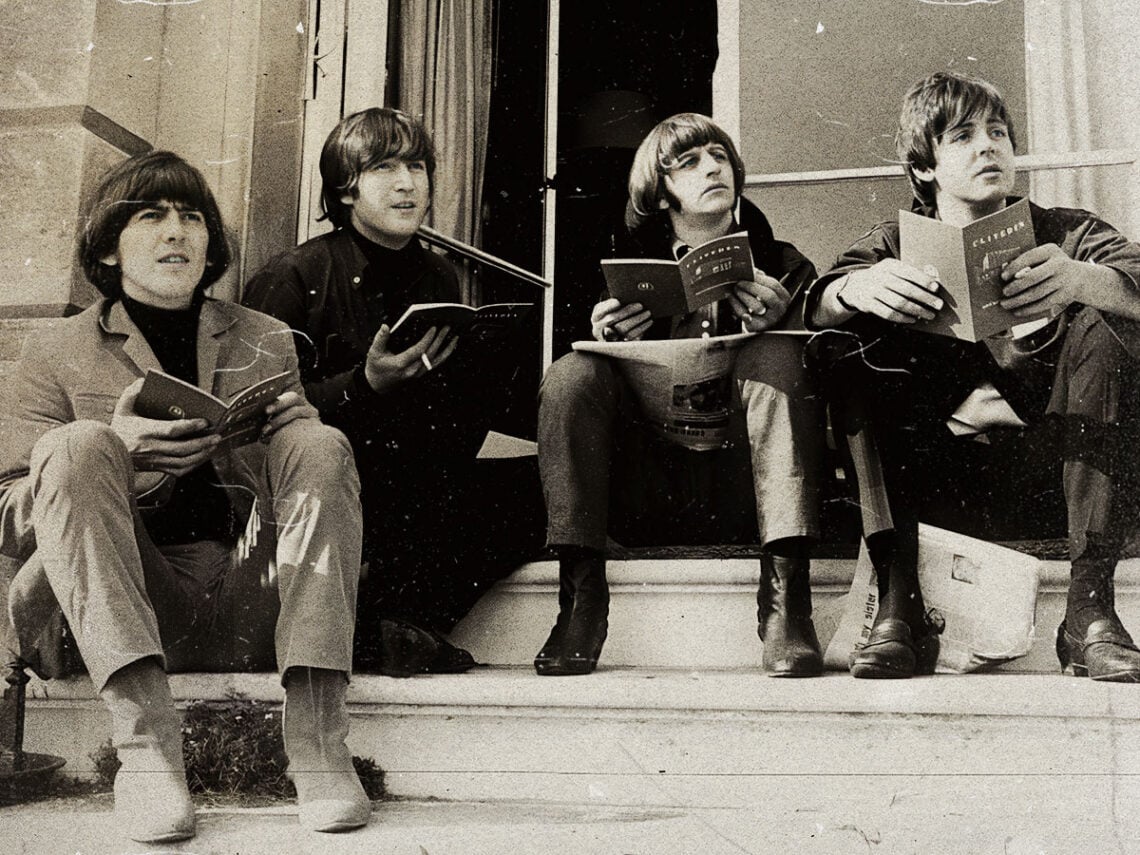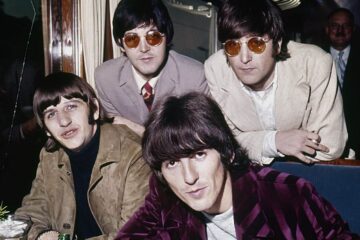By the mid-1960s, The Beatles were making great rock songs faster than they could spit them out. With John Lennon and Paul McCartney quickly becoming a glorified hit factory, even their lesser hits became standouts for other artists, like The Rolling Stones’ take on ‘I Wanna Be Your Man’, for example. While the money and fame probably didn’t hurt the band’s ego, John Lennon wasn’t looking to be play the same style of rock and roll forever.
After becoming obsessed with Bob Dylan while making A Hard Day’s Night, Lennon would often crib ideas from the American folkie, practically making a pastiche of him on the song ‘You’ve Got To Hide Your Love Away’ from Help. Once they got comfortable with the studio environment, though, Lennon thought it was time to broaden his lyrical horizons.
Slaving away for what would become Rubber Soul, Lennon was stuck in his house trying to write anything close to a hit when ‘Nowhere Man’ fell out of him, recalling, “I’d spent five hours that morning trying to write a song that was meaningful and good, and I finally gave up and lay down. Then ‘Nowhere Man’ came, words and music, the whole damn thing, as I lay down.”
While Lennon might not have consciously done it at the time, what he had on his hands was far more autobiographical about where he was. Feeling confined to the rock and roll circus, Lennon started to become fairly introverted at this point in The Beatles’ career, even chalking this side of this era as his “fat Elvis period”.
Outside of sporting the band’s best harmony work up to that point, Lennon is speaking from his perspective on the song, referring in the second person about how everything he does in life doesn’t seem to matter. Coming from the same man who had quickly become one of the biggest stars in the world, it was a revelation to know that even a man in Lennon’s position still felt lost in the world.
While Lennon paints the picture of a lonely man watching the world pass him by, he does cut himself some slack, reminding himself that the world is at his command. Though the meaning of the song was never directed at Lennon, McCartney remembered his writing partner telling him what the song was all about, telling Rolling Stone: “It was really an anti-John song, written by John. He told me later that he’d written it about himself, but he was clever enough to write the line ‘Isn’t he a bit like you and me.’”
Once the walls came down, Lennon became free to write about more introspective topics. Across Rubber Soul, tracks like ‘Girl’ and ‘In My Life’ are more autobiographical takes from ‘The Intellectual Beatle’, talking about the complexities of relationships and what he wants out of life besides being a rock and roll star.
This personal approach to his lyrics would continue throughout Lennon’s entire career, eventually working alongside Yoko Ono to put together some of the most revealing songs of his career on albums like Plastic Ono Band. The Beatles were already looking to get past the moptops, but the lyrical barrier started to break when Lennon wrote this song.



